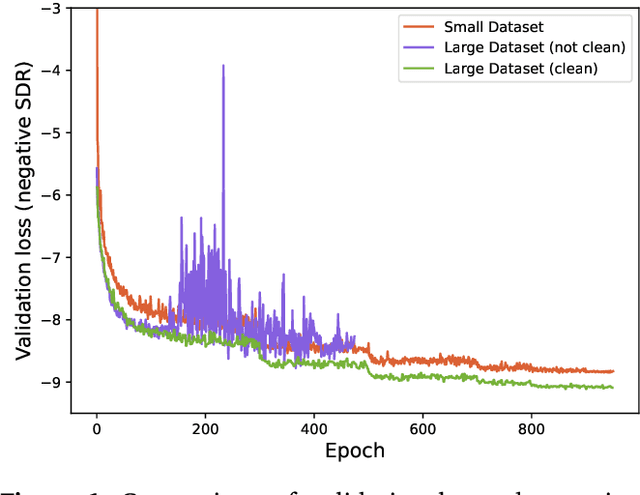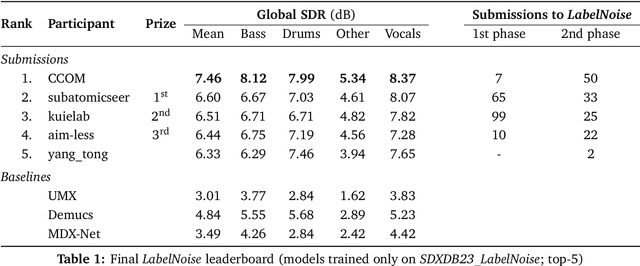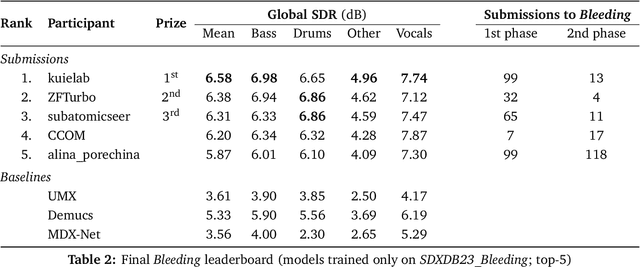The Sound Demixing Challenge 2023 $\unicode{x2013}$ Music Demixing Track
Paper and Code
Aug 14, 2023



This paper summarizes the music demixing (MDX) track of the Sound Demixing Challenge (SDX'23). We provide a summary of the challenge setup and introduce the task of robust music source separation (MSS), i.e., training MSS models in the presence of errors in the training data. We propose a formalization of the errors that can occur in the design of a training dataset for MSS systems and introduce two new datasets that simulate such errors: SDXDB23_LabelNoise and SDXDB23_Bleeding1. We describe the methods that achieved the highest scores in the competition. Moreover, we present a direct comparison with the previous edition of the challenge (the Music Demixing Challenge 2021): the best performing system under the standard MSS formulation achieved an improvement of over 1.6dB in signal-to-distortion ratio over the winner of the previous competition, when evaluated on MDXDB21. Besides relying on the signal-to-distortion ratio as objective metric, we also performed a listening test with renowned producers/musicians to study the perceptual quality of the systems and report here the results. Finally, we provide our insights into the organization of the competition and our prospects for future editions.
 Add to Chrome
Add to Chrome Add to Firefox
Add to Firefox Add to Edge
Add to Edge